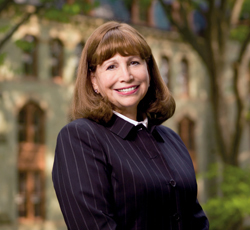Building On Our Research Legacy
In November, Teachers College held its Homecoming and its second annual Symposium on Educational Equity on the same day - to my mind, a perfect convergence of events.
After all, the legacy of TC is doing great research that answers the practical concerns of educators and policymakers. Historically, from James Earl Russell, John Dewey and E.L. Thorndike to Edmund Gordon, Maxine Greene and Mort Deutsch - and including so many of our faculty and alumni in between - we have done the transformative inquiry in education and related fields. This year's Equity Symposium built on that legacy by taking a hard look at the federal No Child Left Behind Act (NCLB) - the most sweeping education law in our nation's history - and presenting new data that measured the law's effectiveness both in achieving its own goals and in closing the gap between America's most advantaged and disadvantaged students. Researchers at the Symposium pinpointed discrepancies in state definitions of teacher quality; traced oversight efforts by the U.S. Department of Education; delved into the law's impact on special education students; and scrutinized NCLB's track record in delivering on its equity goals. All of this should be enormously helpful to Congress when it begins debating reauthorization of the law next year.
There are plenty of other areas where our research can be of great value. We need to understand exactly what it is about teacher preparation that leads to good teaching. We need to understand the costs and benefits of various approaches to professional development, to induction programs for teachers, and especially to retaining teachers, because 50 percent of our teachers quit during their first five years on the job.
To tackle these issues, TC must create more incentives and a better environment for faculty research. We must raise more scholarship money while altering our mix of full-time and part-time students, so that faculty will have fewer doctoral advisees and more student colleagues in research. We must look at the basic incentives surrounding salary structure and research funding. In general, we must reduce hassles wherever possible.
Which brings me to one more important happening at TC this past month: TC's Office of Sponsored Programs, under the direction of Paul Kran, has added two new specialists who will provide improved grants management assistance to faculty who have been struggling with administrative paperwork. The specialists will track new grants and renewals, and eventually existing grants as well. They will function as budget administrators on the grants, with related responsibilities.
It's a small step, but judging from all the faculty members who emailed their thanks to Paul, a significant one. Now it's up to all of us to make the most of it.
Published Wednesday, Dec. 13, 2006
